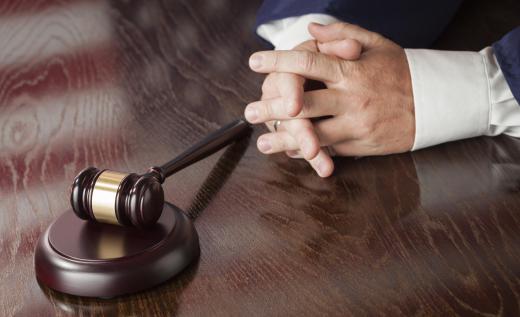At MyLawQuestions, we're committed to delivering accurate, trustworthy information. Our expert-authored content is rigorously fact-checked and sourced from credible authorities. Discover how we uphold the highest standards in providing you with reliable knowledge.
What Are the Different Types of Legal Discourse?
Legal discourse refers to the acts of communication used in the practice of law. There are two basic types of legal discourse: the written and the oral. In its general sense, written communication refers to communication that is more permanent and more useful for reference, as these are words put down on paper and will not disappear upon delivery. On the other hand, the oral type of legal discourse is temporary in nature. Once uttered, it may be lost if steps are not taken to write or type it down.
In law, communication is essential because it bridges the barriers between client and lawyer, lawyer and lawyer, and judge and lawyer. Thus, in legal discourse, certain terminologies are often used. These terms and phrases are branded as pertinent and exclusive to the meaning given to them by the legal world. Although it takes the form of linguistics, legal discourse does not confine itself to linguistic methods. Its principal basis is the theory of law, because it is meant to aid legal players in their day-to-day communication relating to law.

Legal discourse, particularly the written kind, gives rise to legislations couched in legal language. The meaning of terms used in drafting laws may either be in its ordinary sense or its technical one. The phrasing, the organization, and the overall form of the drafted laws have legislative intent that brings forth legal analysis. Written communication in law involves significant variations of grammar and word usage, which are a manifestation of the intent of the framers to have a word or phrase understood in one way for a specific field of law, yet comprehended in another way for a different legal area. Understanding these nuances is typically very important in obtaining an accurate interpretation of the texts.

The oral type of legal discourse refers principally to the language used in the speech or utterances of a lawyer as he or she participates in courtroom advocacy. Courtroom advocacy refers to the arguments, motions, and objections that a lawyer may raise in the course of his or her defense or prosecution. There is a specific legal language outlined and mandated to enable a swift and uniform comprehension of what a lawyer intends to communicate. The two types of legal discourse are interdependent and are often used simultaneously. One follows logically after the other, but both highlight the purpose of preventing ambiguity and vagueness in the practice of law.
AS FEATURED ON:
AS FEATURED ON:














Discussion Comments
Both of you guys make some very good points. Also, I would like to note that when it comes to oral communication, you have to make sure to be careful as well. When speaking to someone face to face, tone and body language are everything. If you say something a bit harshly (even if you don't realize it), the other person could misinterpret it the other way, and think you're being rude to them. Trust me, I've had this happen before.
@Krunchyman - I agree with you, as written communication isn't the best. In my opinion, the reason why is because more than often, you can lose your "tone", and things can be misinterpreted. For example, if you were writing a letter to someone, though it could be very articulate, always make sure that you use the correct tone. Unlike oral, where people can see you, all the reader has to go by is the intent and wording of what you're writing.
In reference to the different types of legal discourse, this article really puts emphasis on how communication matters in most events and practically every situation. Honestly though, I've always preferred oral communication instead of written.
Post your comments